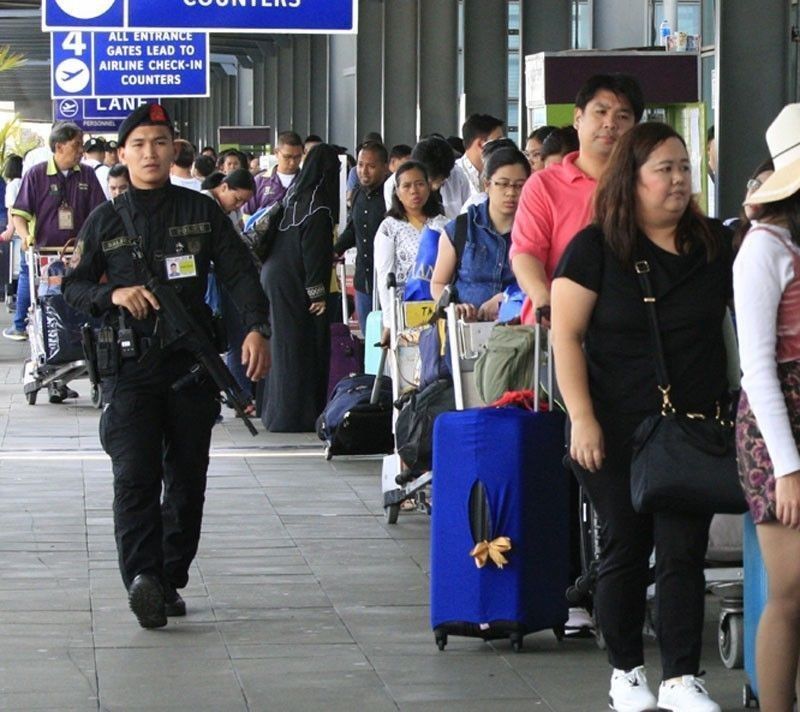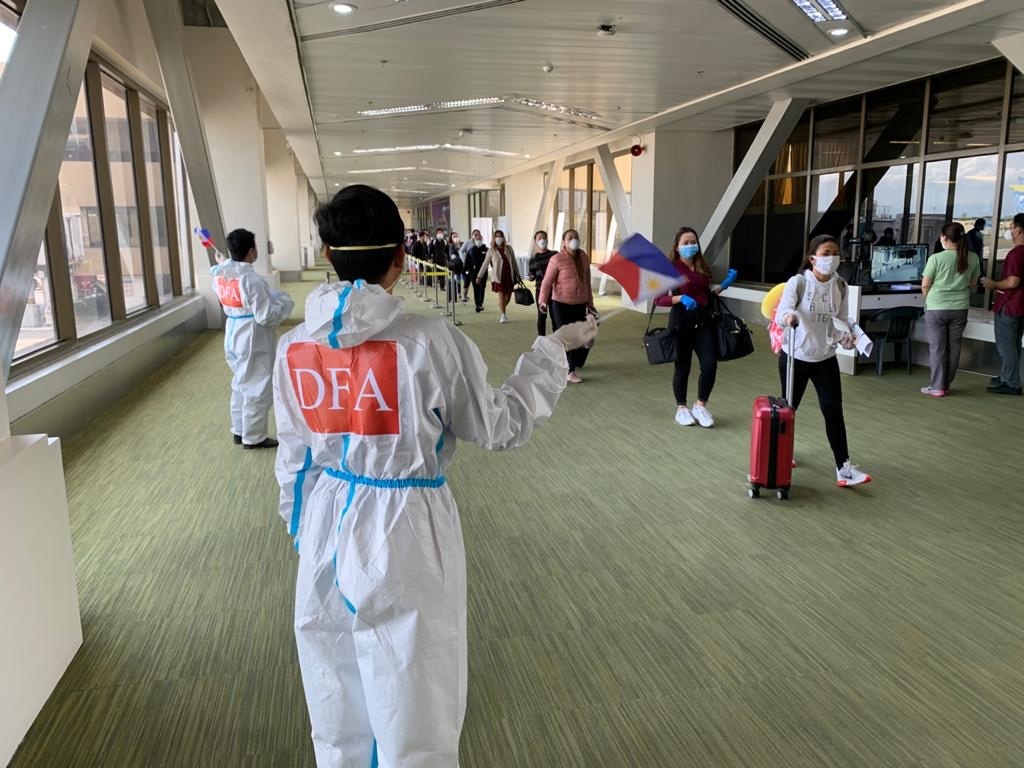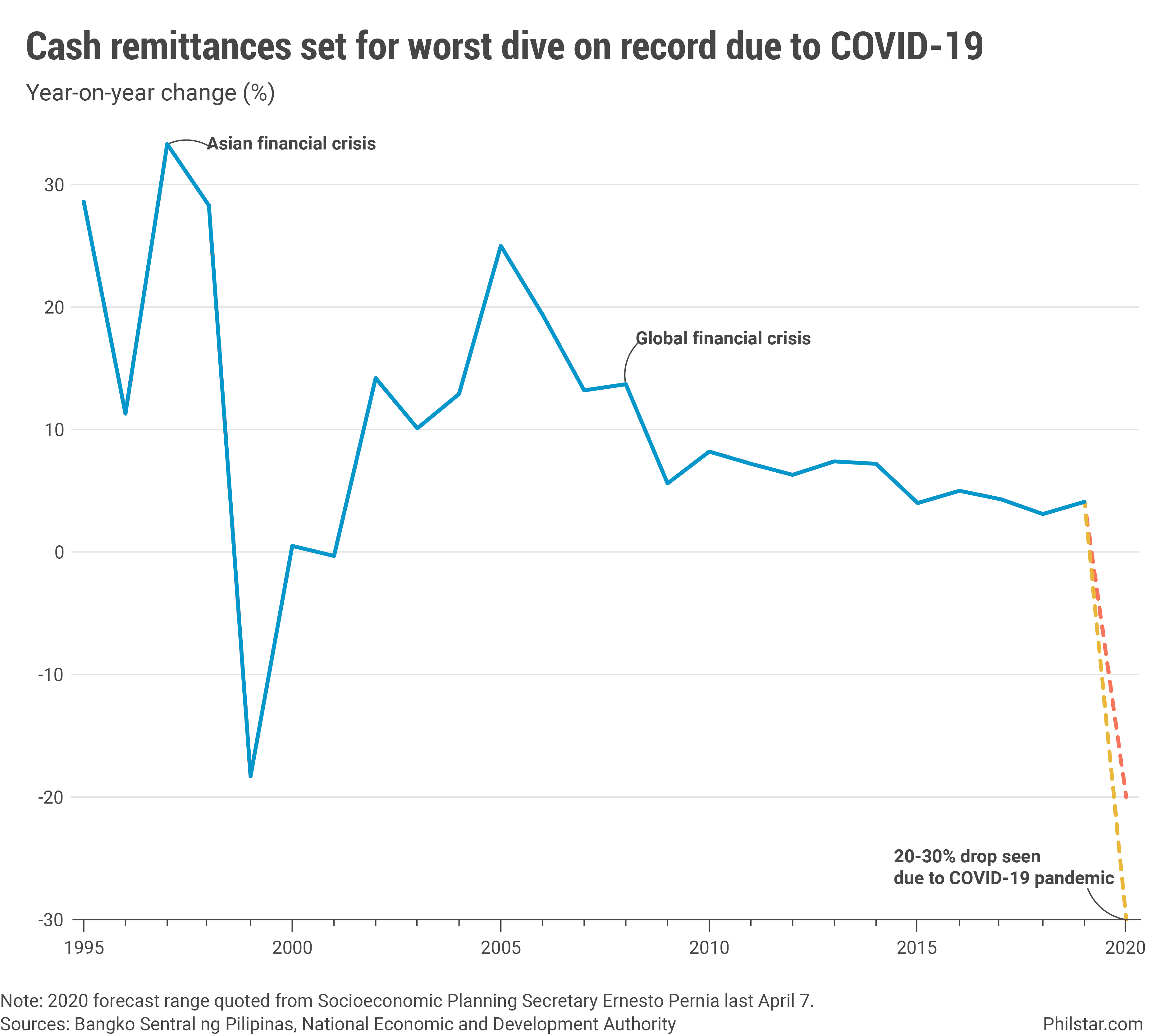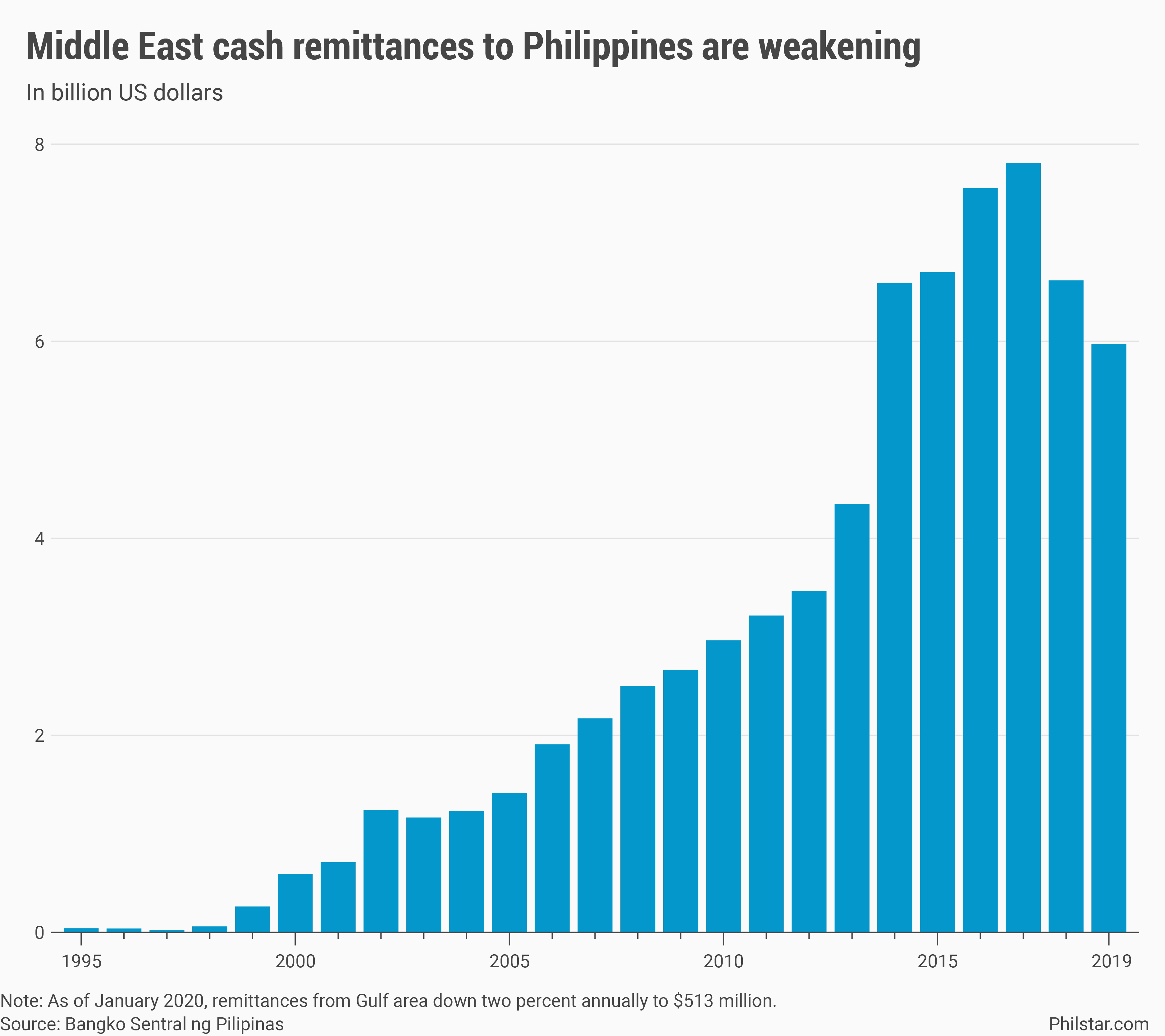Coronavirus puts Filipino migrant workers in the corner

MANILA, Philippines — Donn Christian Testor, a 30-year-old nurse in United Arab Emirates, went for a vacation in his hometown in Cavite last month. He was supposed to fly back to the Middle East last April 5 until the government stopped him from doing so.
Testor is one of thousands of Filipino healthcare workers stuck at home after they were barred from leaving while the state of public health emergency on the coronavirus disease-2019 (COVID-19) is in effect. The government on Monday retracted the policy and allowed him and others with existing contracts to fly out but not before UAE was placed on lockdown, preventing them from entering.
“I understand our situation here, but I hope the government also understands us. We have many responsibilities to our host country. I’m under contract, what if they put us on the blacklist and fine us for breach of contract?” Testor said in an online interview on Monday.
At the other end, Lotis Anne Que, 29, believes the situation is not any better offshore. Que, who works as business developer, has not able to send money home in the past two months since the pandemic forced Qatar and herself in isolation. “My Mom said she and my siblings are still okay financially. Hopefully I get to send them money by next week but it's still not sure,” Que said.
For too long, dollar remittances from the 2.3 million-strong Filipino workforce abroad have shielded the Philippines from shocks that otherwise could have flipped over a developing economy. But the resiliency of these inflows, which last year reached a new peak of $30.1 billion, now risks getting tested, and likely weakened as COVID-19 leaves no country unscathed and workers with no safe haven.

Stuck at home, abroad
Containment efforts to put the novel virus under control are inadvertently restricting movements of migrant workers and Filipino breadwinners, together with their jobs and earnings, are among the badly hit victims. Nicholas Mapa, senior economist at ING Bank in Manila, said it is the “first time in forever” that he is “worried” about the fate of remittances.
“Filipinos and their altruistic motivation to send remittances assured (us) that if a worker lost his job, he or she would find a sideline or two to compensate. Meanwhile, a natural hedge of Filipinos deployed all over the world meant that a recession in Europe could be offset,” Mapa said in an online exchange.
“COVID-19 now negates all these with the virus in all parts of the world. COVID-19 is really our kryptonite,” he added.
Mapa is not alone. On April 7, Socioeconomic Planning Secretary Ernesto Pernia said the pandemic could wipe out between 20-30% of remittance inflows this year. The losses would be significant, economist Alvin Ang said, adding remittances would likely drop by $6 billion this year if one would consider how the virus has shuttered global business and closed down entire cities.

“This is a global one. The other crises affected selected countries only. People then were able to move to different jobs. Right now, people cannot move anywhere,” said Ang, chair of Ateneo Center for Economic Research and Development.
The Middle East, where 57% of Filipino workers were based as of 2017, easily takes the brunt of the impact. Apart from the pandemic, stuttering oil prices are hitting oil-reliant economies like Qatar hard, prompting these countries to let go of foreign workers. Repatriations have started in UAE, just as remittances from the region have declined in the past two years.

Beyond land, the virus catches on the work of around 100,000 Filipino seafarers. According to the foreign affairs department, more than 13,000 sea workers were already sent home as of Wednesday by cruise lines in Asia and Europe stopped in their voyages by travel barriers. Recruiters say the number may reach 25,000 by end-May.
Apart from newly hired healthcare workers, deployment of overseas Filipino workers is still permitted even amid COVID-19. But with many economies frozen by the pandemic, the appetite for migrant workers have also moderated.
Minimal cash aid
The government’s response to the influx of workers coming home has been limited. Apart from free rides from the airport to state-designated quarantine sites, displaced workers may apply for a lumpsum cash of P10,000 each as aid, an amount that falls below the capital’s minimum wage.
Not everyone will also get subsidized, with affected workers from 29 countries including Saudi Arabia, Hong Kong and Italy being prioritized. A budget of P1.5 billion was allocated for the program, which means the government will be able to assist up to 1.5 million displaced workers.
“We are expecting remittances to be flat this year, sapping roughly 0.2 percentage points from growth across consumption and capital formation,” Mapa said. The central bank sees remittances rising 3% this year.
But early on, the pandemic’s impact is already being felt by Philippines’ new heroes. In Qatar, Que relayed how some Filipinos fired out of work are left stranded in the airport with no flights to bring them home. “Filipinos here have Facebook groups where many have asked for food or bed space as they cannot leave the country,” she shared in Filipino.
“The upside of not being able to send money home is we get to have cash for ourselves during these uncertain times,” she said.
- Latest
- Trending






























